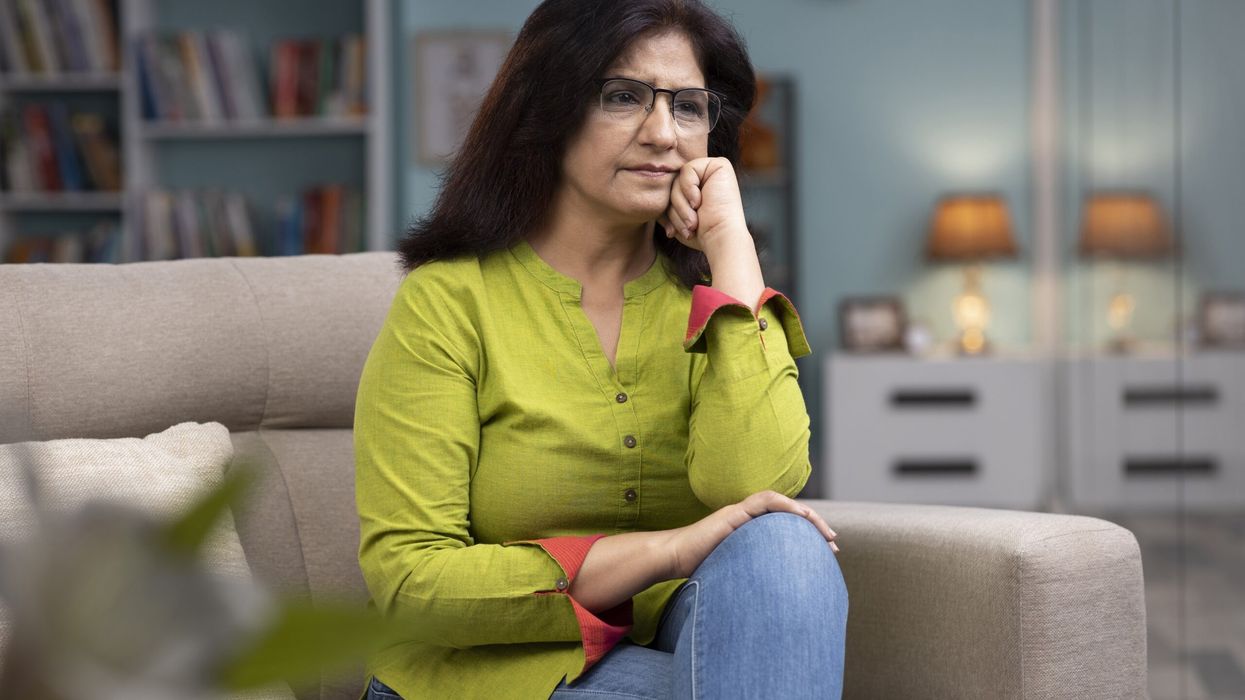In an effort to bridge the information gap surrounding menopause experiences for ethnic minority women in the UK, Besins Healthcare has launched new multi-language resources, “Language of Menopause” aimed at fostering better conversations about menopause within diverse communities.
Launched on World Menopause Day 2023, (18 October) these digital resources including an ‘A-Z’ symptom guide and ‘Jargon-buster’ leaflet, which are available for free download, provide essential information in English, Urdu, Punjabi, and Gujarati, with plans to expand to other languages soon.
Research underscores the increased risk of cardiovascular disease (CVD) among south Asian women during menopause, emphasising the necessity for tailored resources, a press release by Besins Healthcare said.
South Asian adults in the UK face higher CVD risks in middle age, even after accounting for various factors. However, these communities lack accessible and appropriate support concerning perimenopausal and menopausal experiences.
Recognising the significance of these disparities, the theme for World Menopause Day 2023 focused on cardiovascular disease (CVD), underlining the urgency of addressing this issue.
In response, the "Language of Menopause" materials have been expanded to include three additional languages, specifically catering to women of south Asian heritage.
These resources feature a "Call to Action," encouraging women to share their symptoms and normalise their experiences within their communities. This initiative empowers women to make informed decisions about their health and well-being, fostering a sense of community and understanding around menopause.
Women navigating the perimenopausal or menopausal journey might struggle to identify their symptoms, especially when dealing with lesser-known ones.
According to a public survey that informed the UK's 2022 Women’s Health Strategy, a mere 9% of nearly 100,000 female respondents felt adequately informed about menopause-related issues.
Additionally, when women seek assistance from healthcare professionals, they often encounter medical jargon that doesn't align with the everyday language they use with loved ones.
This mismatch hampers their understanding and feeling of being heard. Besins' "Language of Menopause" campaign, including the jargon-buster, which is a short guide decoding medical terms people might hear used in appointments, strives to bridge this communication gap.
In 2021, 18% of individuals in England and Wales were identified as part of black, Asian, mixed, or other ethnic groups. Due to the health disparities that persist in the UK, ethnic minority individuals report less satisfactory experiences with healthcare services compared to their white counterparts.
Moreover, British ethnic minority women's experiences with menopause have been a neglected area of study, as emphasised by the British Menopause Society (BMS) Tool for Clinicians titled "Menopause in Ethnic Minority Women", published earlier this year.
This tool sheds light on the significant variations in how people from diverse ethnic and cultural backgrounds undergo and discuss their menopausal journey.
Dr Shashi Prasad, the experienced GP and certified Lifestyle Medicine Physician who worked with the BMS to develop the clinician tool, said, “This year’s World Menopause Day theme of Cardiovascular Disease is a crucial reminder that while menopause is something almost every woman will go through, there is no single ‘universal’ experience of menopause.
“There is still an overwhelming gap in what is known and understood about the menopause transition in ethnic minority women – not only among medical professionals, but also these women themselves, who often face additional barriers to accessing information and therefore quality care.”
The absence of culturally tailored resources has created challenges in relating to the menopausal experience, especially given the notable disparities in experiences across different ethnicities.
For instance, South Asian women, originating from Indian or Pakistani backgrounds, are susceptible to cardiovascular risk factors such as diabetes and hypertension during the menopausal transition. Afro-Caribbean women undergo menopause earlier and often endure more intense vasomotor symptoms like hot flushes and night sweats.
Similarly, south-east Asian women, including those of Chinese or Japanese descent, may encounter concerns such as forgetfulness, joint pains, and muscle aches during menopause.
These diverse experiences underscore the need for comprehensive and culturally sensitive support systems for women from various ethnic backgrounds.
Dr Sangeeta Sharma, the medical director at Besins Healthcare UK, emphasised the company’s commitment to empowering women across diverse backgrounds. She said that the launch of the 'Language of Menopause' materials in various south Asian languages and English reflects their dedication to the Women’s Health Strategy.
She added that this initiative aligns with a ten-year vision aiming to help all women navigating the perimenopause and menopause phases recognise symptoms and understand their healthcare options.
For more information and to access the digital resources, individuals can visit the Besins Healthcare UK menopause education website. Besins Healthcare UK also supports a news-style programme titled ‘Menopause Misinformation and Management,' produced by ITN Business in partnership with the British Menopause Society, as part of World Menopause Day.
Besins Healthcare is a specialist company that has dedicated over 50 years to understanding the impact of hormones in the fields of gynaecology, andrology, fertility, obstetrics, and endocrinology.




